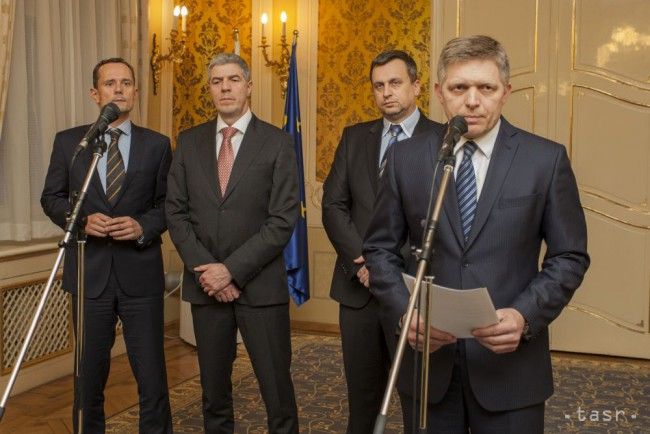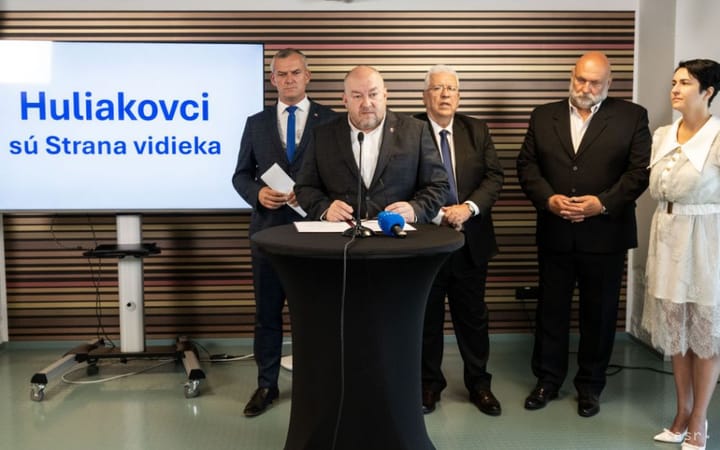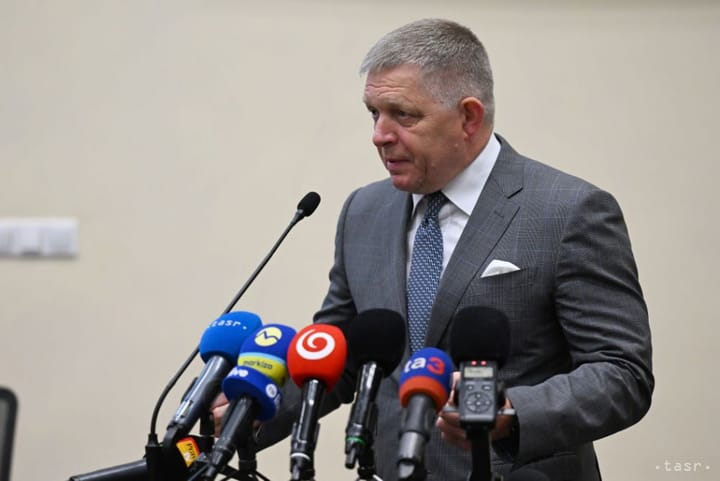Coalition Agreement for 2016-20 Released

Bratislava, April 13 (TASR) – After some recalcitrance, the governing coalition (Smer-SD, SNS, Most-Hid and Siet/Network) on Wednesday released the coalition agreement for 2016-20 signed back on March 23.
The preamble states that the four parties have agreed on setting up a Government with the aim of securing stability and growth for the country. At the same time they pledged to transparent governance, preservation of Slovakia’s traditions and statehood, and to supporting the country’s membership in security and international structures such as NATO and the European Union.
Some noteworthy specifics from the agreement include an upgrade of Slovakia’s security and defence strategy and higher attention to Slovaks living abroad. The anti-corruption programme includes the adoption of an effective law against the presence of letterbox companies in any business involving public funds. The parties also want to pursue open governance and introduce a constitutional law on proving the origin of public official’s property.
With respect to taxes, the coalition parties want to cut the income tax rate for legal entities from 22 percent to 21 percent and evaluate its possible further reduction on an annual basis. The tax licences are projected to be scrapped as of 2018.
In education, the coalition plans to increase public spending in the sector substantially, while seeking new private sources of funding for sport and culture. At the same time it wants to strengthen education against extremism and totalitarianism, and improve the system of dual education.
As for health care, it has been agreed that the Opposition will be let in into supervisory bodies of state insurer Vseobecna Zdravotna Poistovna (VsZP) and the Health Care Supervisory Authority. The coalition also plans to reduce profits for private health insurance companies and squeeze the waiting times for medical procedures.
When it comes to police and courts, the coalition parties agreed on bolstering independent supervision over activities of armed corps, strengthening parliamentary control over the process of appointing the Police Corps president, and increasing public control over judiciary.
A Coalition Council featuring four members – chairmen of the respective parties – has been established to boost coordination within the grouping. It should regularly meet up once a month, with any decisions to be adopted by consensus. In emergency situations, it can be convened by any member within three days.



